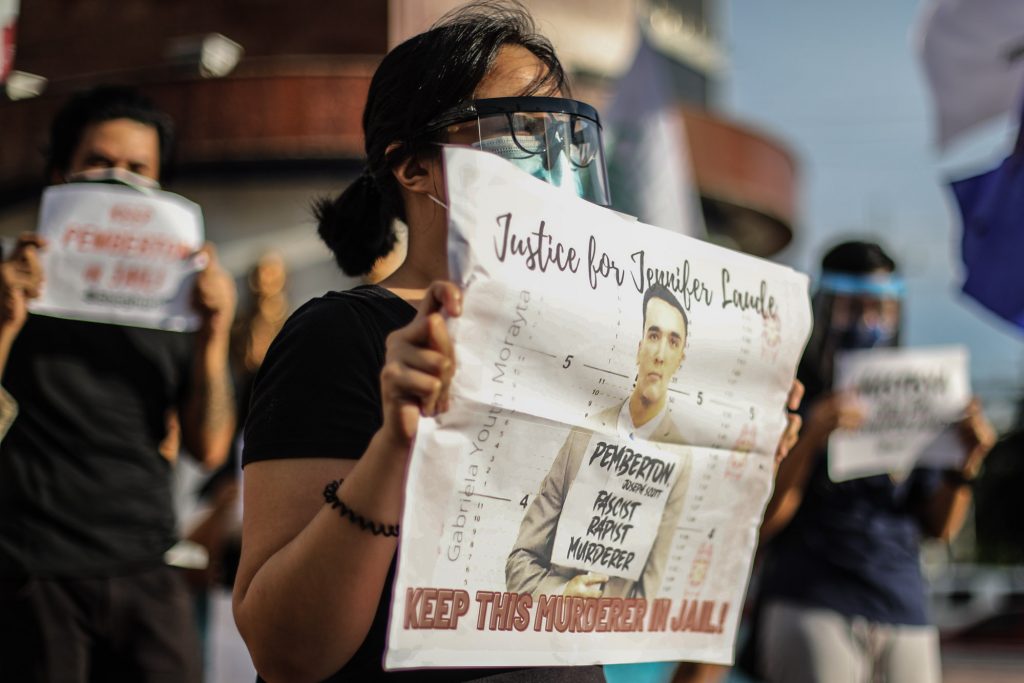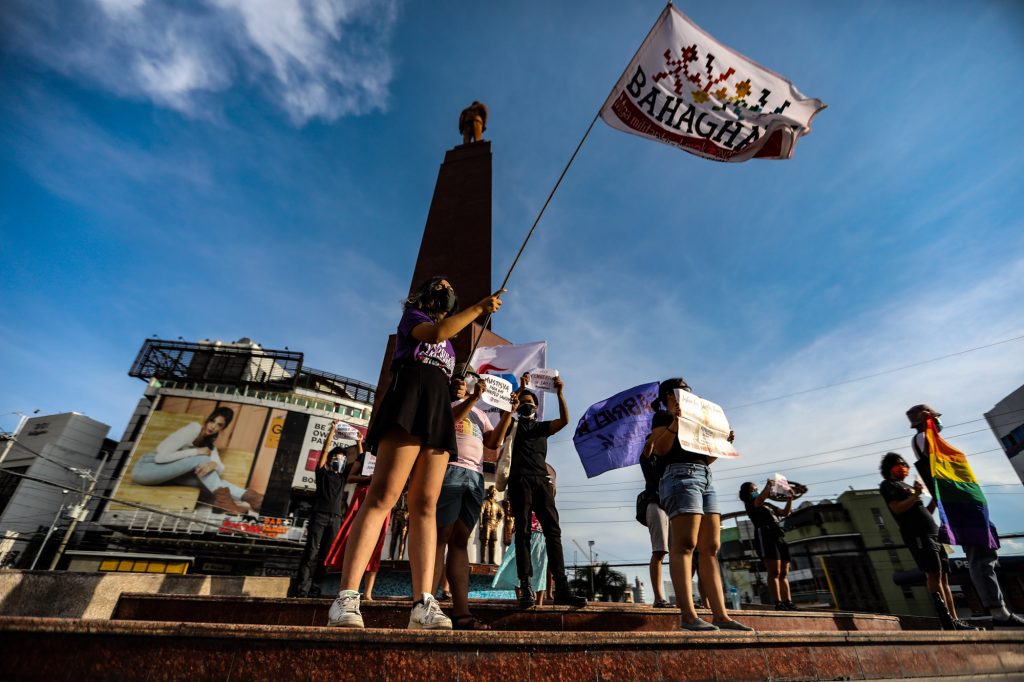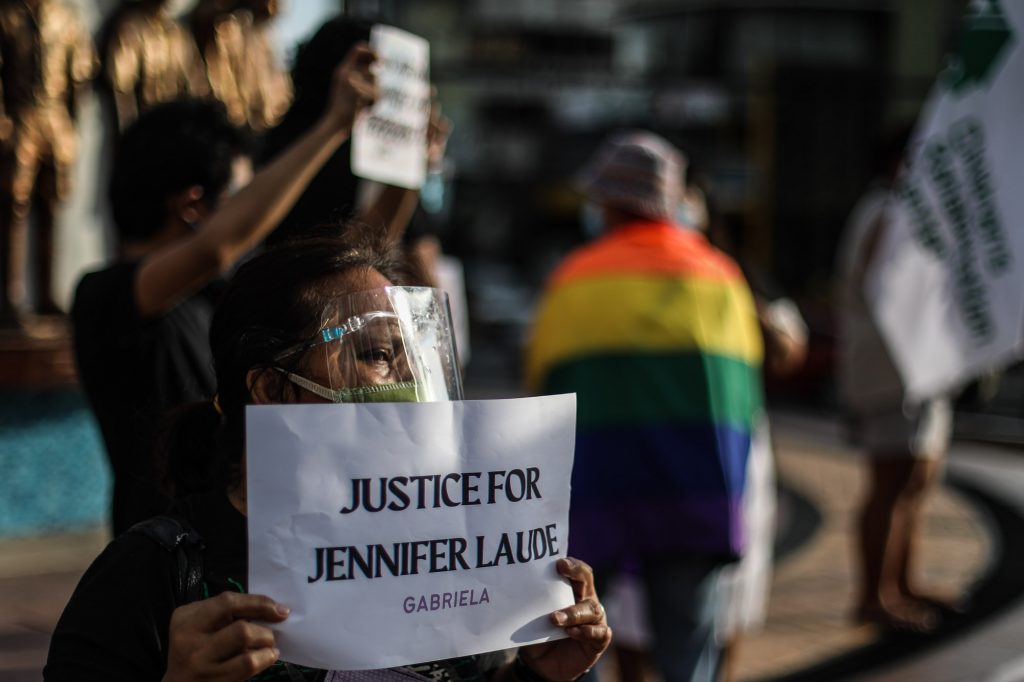
The National Council of Churches in the Philippines (NCCP) condemned President Rodrigo Duterte’s decision to grant “absolute pardon” to a US Marine who killed a Filipino transgender woman in 2014.
On September 7, Duterte granted “absolute pardon” to Lance Corporal Joseph Scott Pemberton, an American Marine convicted of homicide over the killing of Filipino transgender woman Jennifer Laude.
Pemberton had been sentenced to 10 years in prison in December 2015.
The Protestant council said granting “absolute pardon” to Pemberton is an “injustice” not only to Jennifer Laude and her family but to all Filipinos.
Bishop Reuel Norman Marigza, NCCP general secretary, said the decision of Duterte to grant “absolute pardon” also showed how little he values the life of a transgender and a Filipino.
“It is like they killed [Laude] again and deeply wounded her family and loved ones anew,” said the Protestant church leader.
“It also belittles the rights and dignity of our LGBT community that are pushing for justice and equality and our sovereignty as a nation,” he said in a statement released on September 9.
Bishop Marigza pointed out that Pemberton was granted “special treatment” while he was serving his sentence in a military camp in Manila, a treatment not accorded to ordinary Filipino convicts.
The Protestant bishop said the president’s decision is “an act of double-standard” amid calls of rights groups to release low-risk, sick, and elderly political prisoners, including those who were wrongfully imprisoned because of their political beliefs, as a humanitarian act to the pandemic.
“If the president can grant absolute pardon to murderers like Pemberton who has not shown any remorse for his deed, then surely he can also free prisoners of conscience whose ‘crimes,’ if they can be called that, are for defending the rights of the poor and marginalized,” said Bishop Marigza.
He said the US Marine’s controversial pardon is an issue of sovereignty.
“It is saddening how truth and justice are sacrificed as [Duterte] submitted our national sovereignty to the US,” said the bishop.
He said Laude’s death is a “glaring image of how the US military presence exacerbates the vulnerabilities of women, children, and LGBT in their own communities.”
“As long as [American troops] are here, our country won’t be a safe space for the Filipinos,” said Bishop Marigza.
“Let us continue to mourn for the injustice to [Laude] but let us also work for justice, peace and the rule of law,” he added.

‘Right and fair decision’
Philippine Foreign Affairs Secretary Teodoro Locsin Jr., however, defended Duterte’s decision to grant the American serviceman “absolute pardon,” saying it was the “right and fair thing to do.”
In a series of Twitter posts, the foreign affairs chief said the pardon showed who are the real friends and enemies of the United States in the Philippines.
“Everyone had ditched [Pemberton] and I mean everyone,” Locsin said in one post.
“No one even asked about him from his side…. He’ll go home to no welcome, except possibly among his poor own. The reality of an uneven society,” said the foreign affairs secretary.
In another post, he said “only rabid anti-Americans see wrong in an act of right and fairness.”
“Now America knows who are its friends and who are its implacable enemies in the Philippines,” added Locsin.
The foreign affairs chief was the first to disclose on September 7 that Duterte had decided to grant pardon to Pemberton.
Duterte later said the country “did not treat [Pemberton] fairly” and that his “good character” should be presumed and credited.
Pemberton’s lawyers had argued that he had more than fully served the sentence if his good conduct were accounted for.
The regional trial court in Olongapo City, where the crime was committed, convicted Pemberton in November 2015. The court agreed with the president’s decision and ordered the release of the US Marine.

Act of impunity
In a statement, Amnesty International Philippines said the “absolute pardon” granted to Pemberton was “an act of impunity.”
“The absolute pardon … is a tragic reminder of the prevailing culture of impunity in the country,” said Butch Olano, director of Amnesty International Philippines Section.
Olano noted that Duterte’s decision exempts Pemberton from serving the remaining time of his punishment for killing a Filipino citizen while on active duty in the Philippines, “despite his testimony of admission and convincing evidence of his guilt beyond reasonable doubt.”
“The president’s decision to pardon Pemberton is ultimately an act of impunity and an impediment to obtaining justice,” he said.
“I hope the president will be as kind to us Filipinos, especially the erring ones like drug addicts, his critics and activists,” said retired Catholic Bishop Teodoro Bacani of Novaliches.
Bishop Arturo Bastes, retired prelate of the Catholic Diocese of Sorsogon, said it is “strange that Duterte gave that pardon.”
“I would have wished that Pemberton would serve some time in prison in reparation for his crime of murder,” said the prelate.
On September 7, six days after Pemberton filed a motion for his release under a “Good Conduct Time Allowance,” or GCTA, the Philippine president granted him “absolute pardon,” extinguishing all of his criminal liabilities without condition.
Pemberton has only served five years and eight months of his prison sentence of six to 10 years for killing Laude.
His motion for release is the first time that the GCTA is being claimed by a US soldier while in solitary confinement, and not serving his jail term at the country’s New Bilibid Prison in accordance with the Visiting Forces Agreement, a mutual defense treaty between the Philippines and the United States.
Source: Licas Philippines
0 Comments